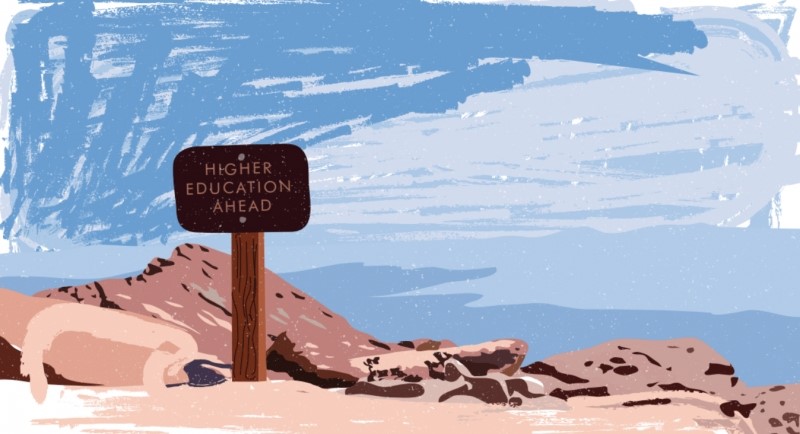Access for all to a PhD? Yes! #successstory
GUEST POST BY Hayleigh Barclay.
Hayleigh is a doctoral candidate in Creative Writing, School of Critical Studies (College of Arts) at the University of Glasgow. And a bit of a rock star.
For many disabled people the prospect of higher education can be daunting if not downright confusing. Amid the usual questions surrounding funding, career options, and course choices, an array of additional issues must be considered for a person with a disability to undertake a PG degree:
· Is the University accessible? Offer disabilities services?
· Does the University offer on-site accommodations with disabled access?
· Does the course cater to my physical needs?
· Will lecturers/ supervisors be understanding of my disability?
· What happens if my condition causes frequent/long term absence?
· Does the local area – pubs, cafes, shops – have adequate disabled access?
As someone with a neuromuscular condition (Spinal Muscular Atrophy) and who strongly believes that everyone has the right to an education, I can tell you that living with a disability need not be a barrier to achieve our ambitions. Three years ago, I applied to UofG to undertake the DFA in Creative Writing, however soon discovered that the on-site disabled facilities e.g. toilets, classroom locations etc, were not suitable for my needs. On my first day of the course I soon realised that it would be impossible for me to attend classes for a full day without access to the facilities necessary for me to carry out personal care requirements.
Luckily, the amazing Creative Writing staff was on hand to help me find a solution. After discussing learning options with my course convener, Dr Elizabeth Reeder, I decided to opt for a Distance Learning pathway.
With the assistance of Dr Reeder and my incredibly supportive supervisors, Dr Zoe Strachan and Dr Carolyn Jess-Cooke, the course was adapted to fit my physical abilities and restrictions to ensure I didn’t miss out on learning opportunities and could communicate effectively with my peers. These included:
· Lectures and workshops were recorded
· Supervision took place over Skype or WebEx
· Learning forums on Moodle ensured easy course contributions
· Emails ensured easy communication with classmates
· Disability services assisted with options on how to find and utilise a scribe
For me, the most important aspect of the PG experience was discovering that the University is a place of acceptance. It values what a student has to offer – both intellectually and creatively - and sees past what society labels as a disability. Many people with disabilities are defined (by their community, the media - and sometimes even themselves) with what they can’t do instead of how they can contribute as members of society.
I believe education is a necessity, not only to create equality between prospective students, but also to instil confidence and sense of community to those who are often overlooked.
It wasn’t until I began my PG experience that I realised my full potential as a creative writer and academic. I was challenged mentally and emotionally as I redefined myself, not as someone held back by disability, but, as an individual with self-worth and belief in my capabilities and ambitions. I was no longer the shy young girl of 16 who, when asked by her careers advisor if she had considered Uni, was terrified because I couldn’t see how I would be taken seriously as someone with valuable additions to offer the world. This feeling has only just left me – at 30 years old! - now that I can look at myself and think “After this year I’ll never be a Miss again – I’ll be a Doctor”. I must have done something right!
The University of Glasgow is the place where I wrote my first novel, learnt how to teach writing workshops (a prospect which terrified me at first and is set to become a frequent highlight of my upcoming year – by choice!), and met the most amazing people who are not only my peers, but also lifelong friends and drinking mates. I honestly couldn’t have survived the past three years without the support and encouragement of friends in the program, like Victoria Shropshire and Sarah Tytler, who helped me through stresses and victories.
As the world becomes an ever-increasing smorgasbord of technology, the opportunities for people with disabilities to engage with PG education are improving. From my experience, it is these very technologies that are opening the doors, allowing me to grow as a writer and fulfil my ambition of gaining a Doctorate.
By working together, students with disabilities and University Staff can negotiate challenges and redefine what it means to have access to Higher Education. To succeed as an academic, a creator, and an innovator it’s imperative to construct – and support – a learning environment that values the mind over the body. Society needs to change to embrace this more, and it is folx like me- sitting in your courses, running workshops, drinking in the union, and proving wrong those who say “No, you can’t” - who will take the world for ourselves.
Hayleigh Barclay is a doctoral candidate in Creative Writing, School of Critical Studies (College of Arts) at the University of Glasgow. And a bit of a rock star.









